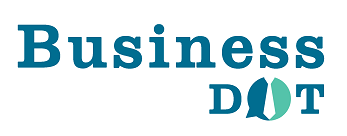
Effective communication stands at the heart of strong leadership. Leaders who master this skill build trust, motivate action, and encourage collaboration within their teams. By developing key communication habits, leaders can enhance their influence and empower others, leading to more cohesive and productive work environments. The following practices are essential for any leader aiming to foster these outcomes.
Active Listening
Leaders who value listening over speaking create stronger connections with their teams. Active listening involves giving full attention to others, asking clarifying questions, and responding thoughtfully. This demonstrates empathy and respect while fostering a deeper understanding of team members’ needs and perspectives. Leaders who listen carefully are better positioned to address challenges and provide effective guidance. Arif Bhalwani Third Eye Capital CEO and Co-Founder, exemplifies the importance of active listening in leadership. Third Eye Capital Corporation helps talented management teams grow their businesses faster and more effectively by offering tailored financing and expert business advice.
Clarity in Messaging
Clear and concise communication helps teams align with their leader’s vision. Avoiding jargon and delivering simple, direct messages reduces confusion and ensures everyone moves in the same direction. Reinforcing key points and inviting feedback further strengthen mutual understanding. Sheryl Sandberg, former COO of Facebook, is recognized for her commitment to clarity. In her book Lean In, she uses straightforward language to discuss workplace challenges facing women, sparking important conversations about leadership and gender equality.
Consistency Between Words and Actions
Trust is built when leaders’ words match their actions. Consistency in tone and behavior, whether serious, supportive, or optimistic, signals reliability and stability. Maintaining this alignment motivates teams to excel and fosters a positive work environment. Leaders who lead by example establish the groundwork for collaboration, lasting success, and enhanced employee engagement. A steady commitment to values, follow-through, and transparent communication helps employees feel confident and inspired, knowing their leaders act with integrity while prioritizing their team’s growth and well-being.
Welcoming Feedback
An open attitude toward feedback encourages learning, respect, and ongoing improvement. Leaders who invite input, respond constructively, and recognize valuable ideas show dedication to growth. Acting on feedback not only engages teams but also creates psychological safety, allowing individuals to contribute ideas without fear. This open exchange supports continuous learning and trust within the group. Transparency in communicating results reinforces credibility and shows that every team member’s voice matters. Embracing feedback cultivates a dynamic environment where everyone feels empowered and valued, driving collective advancement.
Adapting to the Audience
Adaptable leaders tailor their communication style to suit different situations and audiences. Inspiring a large group requires a different approach than mentoring an individual team member. Adjusting language, tone, and delivery helps ensure messages are understood and have the desired impact. This flexibility builds stronger relationships and engagement, making certain all team members feel heard and valued. Effective adaptation allows messages to connect with diverse audiences, supporting teamwork and individual growth.
By developing these communication habits—active listening, concise messaging, consistency, receptiveness to feedback, and adaptation—leaders build stronger relationships with their teams. Focusing on trust, understanding, and regular dialogue provides the foundation for lasting influence and successful leadership.

